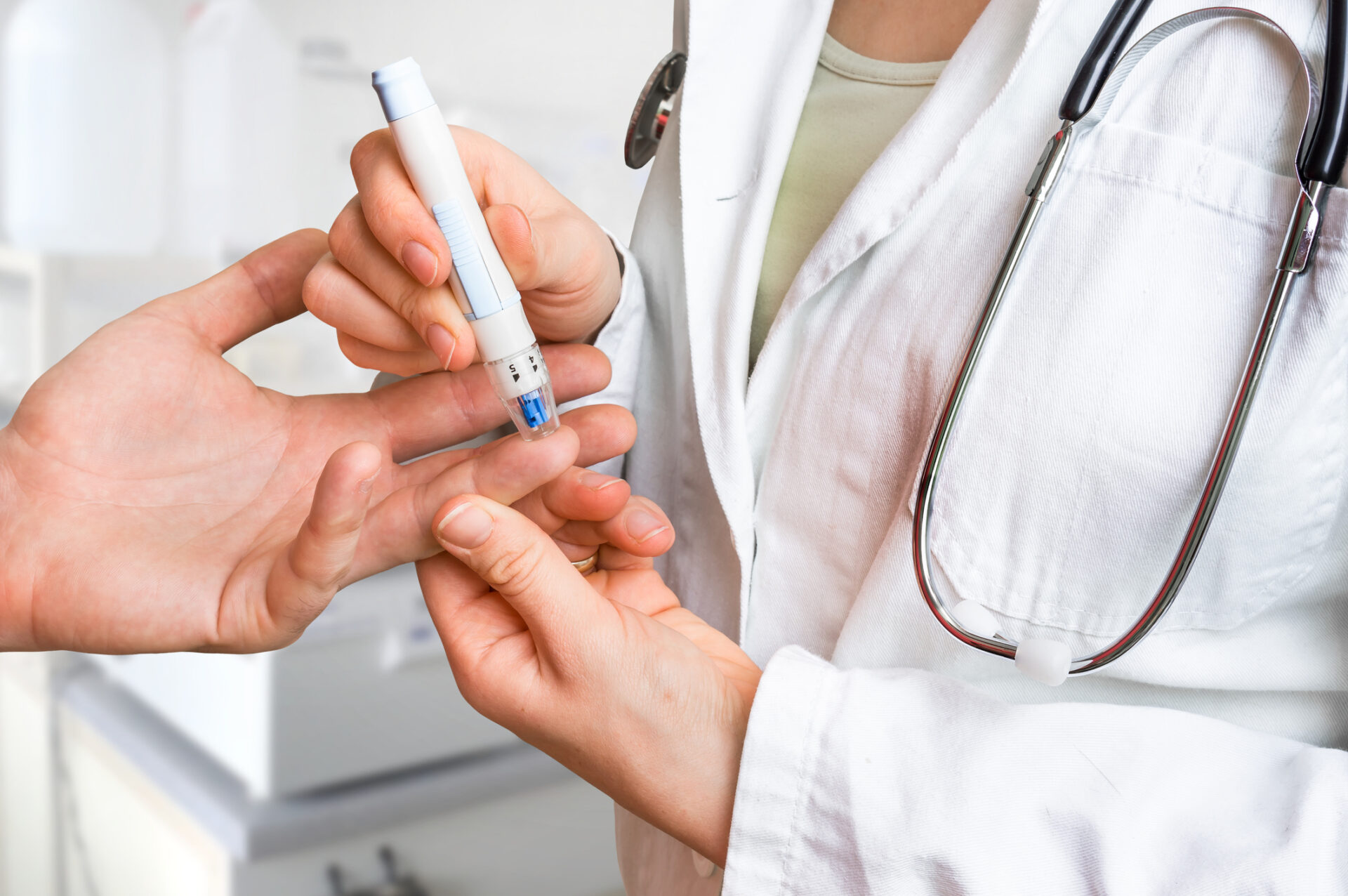Diabetes is a disease that occurs when blood glucose (sugar) remains at sustained high levels. This is caused when the pancreas cannot produce a hormone called insulin, cannot properly use the insulin it produces, or a combination of both.
There are different types of diabetes that a patient can be diagnosed with. Type 2 is the most common, which is a condition where your body does not produce enough insulin, or it does not respond properly to the insulin that is produced. This results in high levels of sugar building up in your blood stream, which leads to the symptoms and complications of diabetes. The other main types of diabetes include Type 1, which is an autoimmune disease where insulin producing cells in the pancreas are destroyed and no longer function, and Gestational Diabetes, which is a condition during pregnancy where the body is resistant to the insulin produced.Diabetes contributes to adverse health effects, such as heart attacks, strokes and kidney failure. Some of the causes of diabetes include a combination of individual, social, environmental, and genetic factors.
Our diabetes specialists are dedicated to providing the highest quality and most comprehensive diabetes care with an emphasis on education and complication prevention.
BEFORE THE TEST
The procedures of a diabetes consultation may vary, but will typically include an interview, physical examination, other examinations as required, and a diagnosis of the patient’s condition. However, preparation for the consultation is also an important step. To maximize the benefits that this procedure can offer, patients are encouraged to:
- Prepare a list of any medications being taken
- Bring results of other medical exams and tests
- Prepare a list of questions to ask the specialist
- Create a complete list of symptoms including their severity and when they started to show
DURING THE TEST
During the first consultation, the specialist will take a detailed medical history and do a physical examination. You will be able to explain and discuss the details of your symptoms.
AFTER THE TEST
Once the specialist has collected all the necessary information, the patient will be informed of the diagnosis and treatment options, which can include:
- Lifestyle changes, which may include smoking cessation, eating a healthy diet, and physically activity.
- Medications, which may include those that manage blood sugar levels and other risk factors.
- Certain tests, such as blood tests
- Scheduled follow-up visits
Source: Diabetes.ca
Locations
Google Reviews
Doctor is patient, thoughtful, and always makes sure I leave the appointment with a clear plan. Since I started working with her, I’ve seen real improvement in how I feel and how well my diabetes is under control.
– Talat H.

